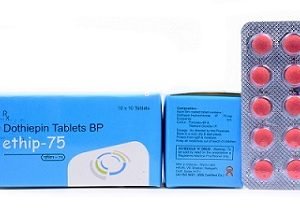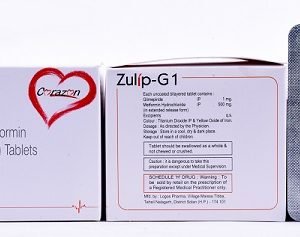Description
THIS COMPOUND BELONGS TO THE CLASS OF ORGANIC COMPOUNDS KNOWN AS DIPHENYLPYRROLES. THESE ARE AROMATIC HETEROCYCLIC COMPOUNDS WITH A STRUCTURE BASED ON A PYRROLE RING LINKED TO EXACTLY TWO PHENYL GROUPS.
PHARMACOLOGY
PHARMACODYNAMICS:
Atorvastatin, a selective, competitive HMG-CoA reductase inhibitor, is used to lower serum total and LDL cholesterol, apoB, and triglyceride levels while increasing HDL cholesterol. High LDL-C, low HDL-C and high TG concentrations in the plasma are associated with increased risk of atherosclerosis and cardiovascular disease. The total cholesterol to HDL-C ratio is a strong predictor of coronary artery disease and high ratios are associated with higher risk of disease. Increased levels of HDL-C are associated with lower cardiovascular risk. By decreasing LDL-C and TG and increasing HDL-C, atorvastatin reduces the risk of cardiovascular morbidity and mortality. Atorvastatin has a unique structure, long half-life, and hepatic selectivity, explaining its greater LDL-lowering potency compared to other HMG-CoA reductase inhibitors.
PHARMACOKINETICS:
- Absorption: – Atorvastatin is rapidly absorbed after oral administration with maximum plasma concentrations achieved in 1 to 2 hours. The absolute bioavailability of atorvastatin (parent drug) is approximately 14% and the systemic availability of HMG-CoA reductase inhibitory activity is approximately 30%. The low systemic bioavailability is due to presystemic clearance by gastrointestinal mucosa and first-pass metabolism in the liver.
- Volume of distribution: -381 L
- Protein Binding: – >98% bound to plasma proteins.
- Metabolism: – Atorvastatin is extensively metabolized to ortho- and parahydroxylated derivatives and various beta-oxidation products. In vitro inhibition of HMG-CoA reductase by ortho- and parahydroxylated metabolites is equivalent to that of atorvastatin. Approximately 70% of circulating inhibitory activity for HMG-CoA reductase is attributed to active metabolites. CYP3A4 is also involved in the metabolism of atorvastatin.
- Elimination: – Eliminated primarily in bile after hepatic and/or extrahepatic metabolism. Does not appear to undergo significant enterohepatic recirculation. Less than 2% of the orally administered dose is recovered in urine.
- Half-Life: – 14 hours, but half-life of HMG-CoA inhibitor activity is 20-30 hours due to longer-lived active metabolites.
INDICATIONS:
- May be used as primary prevention in individuals with multiple risk factors for coronary heart disease (CHD) and as secondary prevention in individuals with CHD to reduce the risk of myocardial infarction (MI), stroke, angina, and revascularization procedures.
- May be used to reduce the risk of cardiovascular events in patients with acute coronary syndrome (ACS). May be used in the treatment of primary hypercholesterolemia and mixed dyslipidemia, homozygous familial hypercholesterolemia, primary dysbetalipoproteinemia, and/or hypertriglyeridemia as an adjunct to dietary therapy to decrease serum total and low-density lipoprotein cholesterol (LDL-C), apolipoprotein B (apoB), and triglyceride concentrations, while increasing high-density lipoprotein cholesterol (HDL-C) levels.













